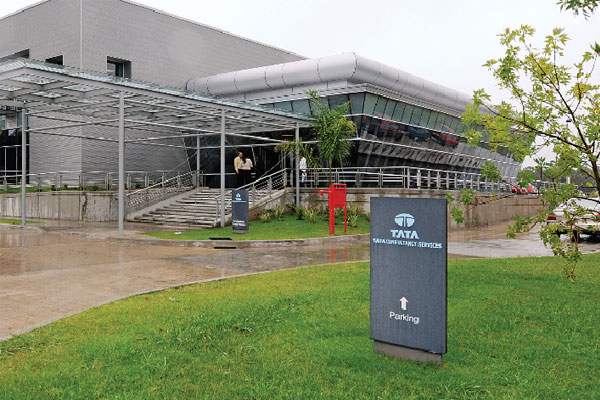
As Tata Consultancy Services is squeezed by the Trump administration to reduce the use of overseas workers for US jobs, the information technology outsourcing giant is also fighting claims in court that its hiring practices are anti-American.
TCS, Asia’s largest software maker, and Infosys, a rival outsourcing firm, are both embroiled in civil rights lawsuits accusing them of discriminating against white IT workers that predate Donald Trump’s election last year.
Even as the outsourcers are responding to the president’s protectionist agenda by hiring more Americans in the US, Mumbai-based TCS cites its reliance on foreign guest-worker visas as a defense against the bias claims. The men suing TCS allege discriminatory hiring practices must be why as much as 79 per cent of its US workforce is South Asian when that group makes up only 12.5 per cent of the relevant labour market in the US.
But the company contends it’s misleading to include employees hired in India to work temporarily and “legally” in the US, many with H1-B visas for specially skilled employees.
It also says more than 40 per cent of its job applicants are South Asians and that not everyone is keen on working for an India-based company or willing to relocate to take a job. A hearing is set for Tuesday at the federal court in Oakland, California, on whether to dismiss the case entirely or expand it to include potentially of thousands of US workers who either were not hired or were fired by TCS because of their race over the last 6 years.
If the case proceeds as a class action, it may encourage white Americans to pursue similar suits against other companies with heavily foreign workforces, said Andra Greene, a lawyer with Irell & Manella in Newport Beach, California, who isn’t involved in the TCS suit.
Greene also said it’s a ‘close’ call which side’s numerical analysis will prevail in court. “People are masters at using statistics to argue their point,” she said.
After campaigning on a pledge to punish US firms for moving jobs overseas, Trump put pressure on the offshore IT servicing firms in April when he signed an executive order aimed at overhauling the work-visa schemes they use to bring workers to the US. The next month, Infosys, which employs 200,000 around the world, said in 2 years it planned to hire 10,000 Americans.
The lawsuit against TCS was filed in 2015 by a white worker who claimed he was subject to “substantial anti-American sentiment” within the company and was ultimately terminated within 20 months despite having almost 20 years of experience in the field. He was later replaced as the lead plaintiff by two other men. One, Brian Buchanan, said he worked at Southern California Edison for 28 years when the firm outsourced the bulk of its work to TCS. He was among 400 people terminated, but said he was asked to stay on for a few months to train the Indian TCS employees that were replacing him. Buchanan claims that at a job fair organised for the employees losing their jobs, the South Asian TCS regional manager was dismissive of interest in a position.
TCS says Buchanan’s experience doesn’t prove he was a victim of bias. He has “no idea” whether the application process was discriminatory because he didn’t attend any of the town hall meetings he was invited to during the Edison transition to learn about open positions with TCS and how to apply for them – and he didn’t apply for a specific job, the firm said in a court filing.
“Buchanan’s mere conjecture that he would have received more attention at the job fair if he were not an ‘old bald white man’ is not supported by facts in the record,” lawyers for TCS wrote.
While the company has a stronger defence if the men suing can’t point to any specific evidence that they were mistreated because they aren’t South Asian, that won’t necessarily carry the day, Greene said.“Usually they don’t tell you I’m not hiring you because you’re white,” she said.




